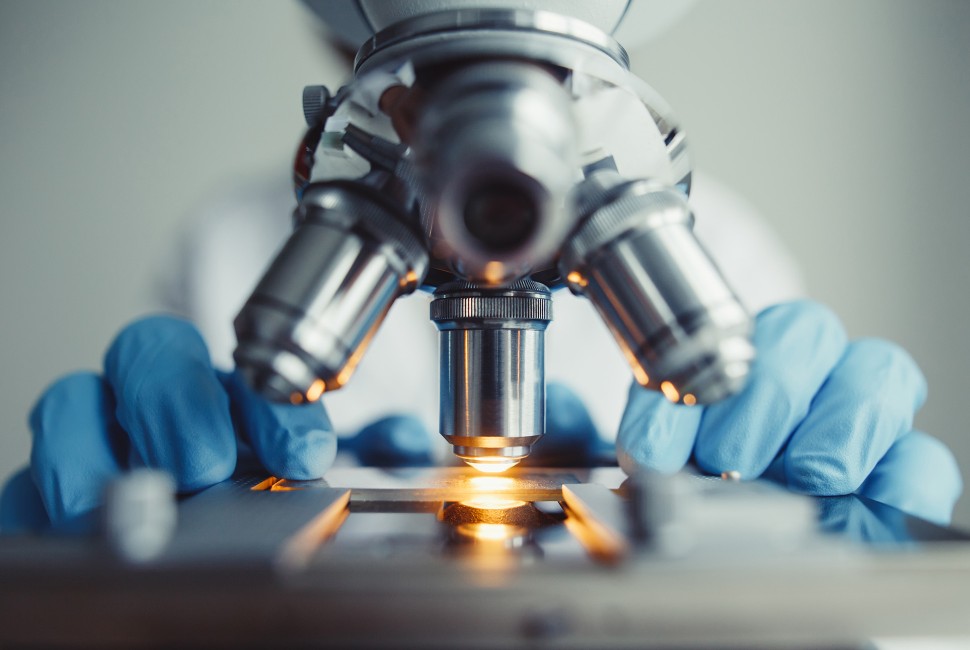Northwestern University has selected eight innovative and high-potential research projects in the life sciences to receive critical seed funding from the Pat & Shirley Ryan Family Research Acceleration Fund. This new resource provides vital bridge funding for promising initiatives within Northwestern’s $1 billion research portfolio, targeting efforts nearing the end of their public financing but not yet ready for private-sector investment — a precarious phase known as the “Valley of Death” in the startup world.
The projects represent the acceleration fund’s inaugural awards and address challenges ranging from sleep quality and medical imaging to Alzheimer’s and Parkinson’s diseases. Led by scientists and engineers from across the University, these research projects focus on extending and improving the quality of human life, exemplifying a Northwestern strategic priority to advance the biosciences and produce real-world results.
The inaugural cohort was chosen (out of 72 proposals) because their projects have great translational potential to make a meaningful and immediate impact on society. The acceleration fund is an important new avenue to propel Northwestern research innovation, supporting promising investigations that can lead to discoveries, therapies, devices and diagnostics. By design, the seed funding will advance research that falls into the “gap” between initial results and being eligible for federal grants or private-sector investment.
We are bridging a critical gap that often hinders groundbreaking projects from achieving their full potential.”
A gift from the Patrick G. ’59, ’09 H and Shirley W. Ryan ’61, ’19 H (’97, ’00 P) Family established the Ryan Family Research Acceleration Fund in 2022 to advance promising translational research discoveries in engineering and medicine. These seed grants — to be awarded twice yearly — enable faculty to undertake promising, sometimes high-risk research that often leads to breakthroughs and additional funding. Each project will receive up to $300,000 for one year. The typical funding period is one year.
“We see the acceleration fund as a translational game-changer for Northwestern,” said Patrick G. Ryan. “By strategically targeting exceptional basic research, we are bridging a critical gap that often hinders groundbreaking projects from achieving their full potential. This support will propel innovative research to solve society’s most pressing challenges while encouraging cross-field collaboration, furthering Northwestern’s unique interdisciplinary strengths.”
Ryan expressed confidence that the inaugural projects will make remarkable progress and exert a transformative impact that inspires future innovations.
“With the generous support of the Ryan Family, Northwestern’s incredible faculty now have a strategic new outlet that better positions them for translating their high-impact work in the life sciences,” Provost Kathleen Hagerty said. “We are eager to see all that these awardees accomplish and to build on their success for the benefit of society.”
“The acceleration fund creates tremendous opportunities for Northwestern, empowering our faculty to pursue trailblazing research that, while bold and promising, is positioned between traditional funding by federal agencies and the private sector,” said Eric J. Perreault, vice president for research. “The number of high-quality applications we received is both thrilling and expected, showcasing our research community’s drive to pursue innovations with societal impact. We are profoundly grateful to the Ryan Family for their steadfast support of Northwestern research excellence.”
The projects highlight the flourishing interdisciplinary teamwork across the University, with 16 faculty members from the Feinberg School of Medicine, the McCormick School of Engineering and the Weinberg College of Arts and Sciences participating in the research.
The principal investigators and their projects are:
Dr. Bradley Allen, chief of cardiovascular and thoracic imaging and assistant professor of radiology, Feinberg School of Medicine. Co-principal investigators: Michael Markl (Feinberg, McCormick), Ulas Bagci (Feinberg) and Ann Ragin (Feinberg)
The project will leverage deep learning to measure aorta blood flow in patients at high risk for thoracic aorta aneurysms, a highly prevalent condition affecting more than 500,000 people annually. In addition to driving beneficial health outcomes, the project will use AI in conjunction with widely available, lower-cost CT or MRI scans to replace highly specialized 4D-flow MRI with a plan to seek FDA clearance for the technology.
Irina Balyasnikova, professor of neurological surgery, Feinberg
This research targets glioblastoma, an incurable brain cancer with a low survival rate. By developing a new targeted intervention (tri-specific T cell engager) that “weaponizes” the immune system to attack cancer cells while sparing healthy tissue, the researchers aim for eventual clinical translation.
Navdeep Chandel, the David W. Cugell, MD, Professor of Medicine in the division of pulmonary and critical care, Feinberg
This proposal uses gene therapy to engineer the yeast protein NDI1 to regenerate NAD+, which is impaired in many primary mitochondrial diseases, including neurodegenerative diseases like Parkinson’s. The researchers also will develop novel AI-designed proteins with the aim of patenting these for technological commercialization.
Shana Kelley, the Neena B. Schwartz Professor of Chemistry and Biomedical Engineering, Weinberg and McCormick
This research project is pursuing a first-in-class, highly efficient, nontoxic intracellular protein delivery system with the potential to fight cancer, neurodegenerative disease, heart disease and autoimmune disease. The technique employs selective target degradation and superior ease of use to maximize therapeutic potential with the goal of clinical translation.
Milan Mrksich, the Henry Wade Rogers Professor of Biomedical Engineering, professor of chemistry and professor of cell and developmental biology, McCormick, Weinberg and Feinberg. Co-principal investigator: William Klein (Weinberg)
This project aims to develop highly specific and effective diagnostics and potential therapeutics to monitor and treat Alzheimer’s disease, a progressive disorder with a substantial societal impact. The research targets the neurotoxic molecules (amyloid beta oligomers) that cause the disease. ModuMab Therapeutics, a recent Northwestern startup, is commercializing this approach to new therapeutics that could broadly impact the immunotherapy field.
Ken Paller, director of the Cognitive Neuroscience Program, Weinberg. Co-principal investigator: Phyllis Zee (Feinberg)
This research aims to improve sleep quality through innovative methods for sleep-physiology monitoring and subtle sensory stimulation based on biofeedback and AI training. Given its promise to help reduce insomnia and bolster health, the project has significant translational potential.
Robert Vassar, professor of neurology and of cell and developmental biology, Feinberg. Co-principal investigator: Katherine Sadleir (Feinberg)
This project will develop a disease-modifying therapy to protect and heal the brain’s membranes from Alzheimer’s disease damage, stopping the disease in its tracks. The effort targets a fundamental cellular mechanism to combat the looming Alzheimer’s epidemic, which is anticipated to afflict some 14 million U.S. citizens by 2050. If the technique is successful, the investigators will launch a start-up venture based on this technology.
Xinlong Wang, research assistant professor, Center for Advanced Regenerative Engineering, McCormick. Co-principal investigators: Guillermo Ameer (McCormick, Feinberg) and John Rogers (McCormick, Feinberg)
Heart disease is the leading cause of death in the U.S., where about 5% of the population suffers from myocardial infarction. This project looks to treat myocardial infarction by developing a minimally invasive injectable bioresorbable cellular cardiac patch with a built-in cardiac sensor and stimulator. This research could eventually be deployed in clinical settings to address an urgent societal health problem.
The Ryan Family Research Acceleration Fund website provides information on the deadline to submit a proposal for the next round of funding and the expected start date for the awards. Direct inquiries to [email protected].


